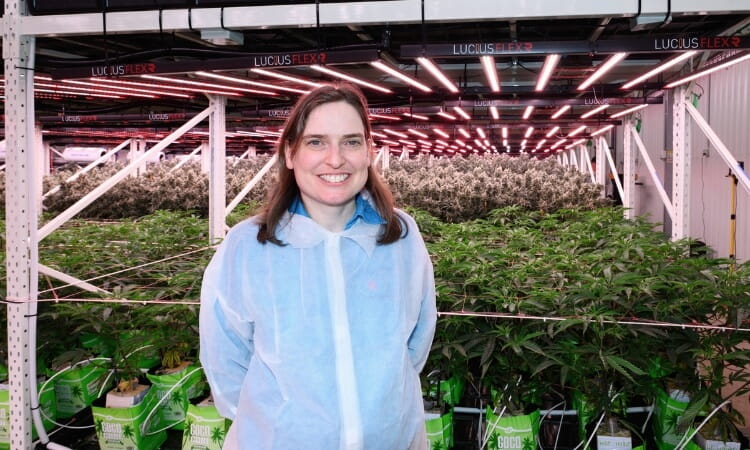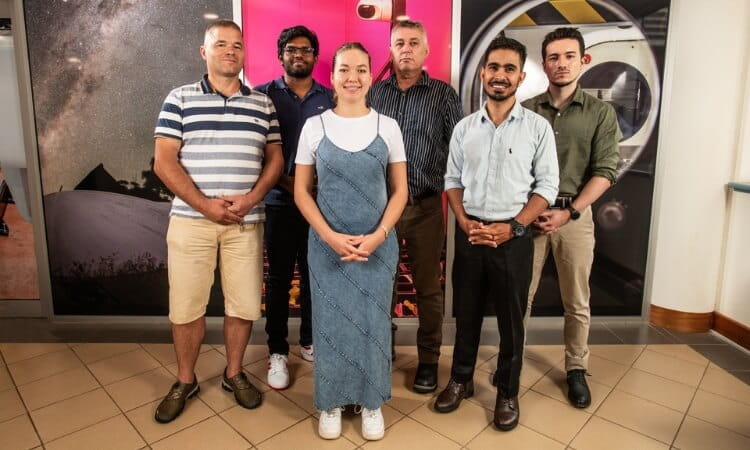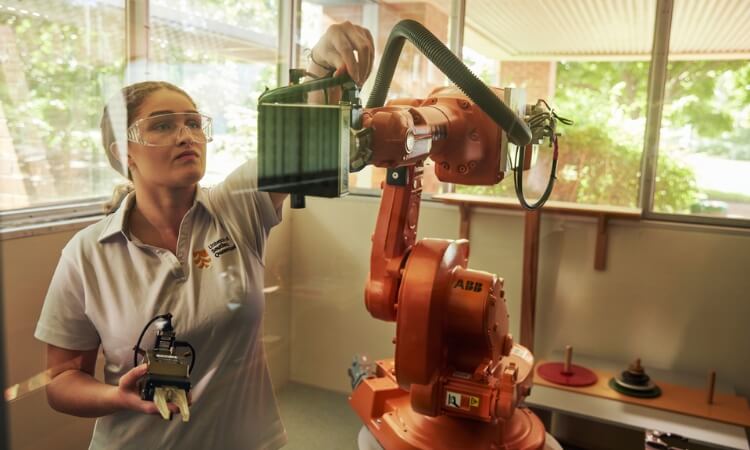What was once a taboo subject in sports locker rooms is being incorporated into elite training programs nationwide to help educate and empower sportswomen to perform at their best.
The University of Southern Queensland (UniSQ) has been chosen by the Australian Institute of Sport (AIS) to lead a landmark research project to address major knowledge gaps among female athletes and those that support them about how the menstrual cycle can impact training and performance.
UniSQ sports science researcher Dr Brianna Larsen is spearheading the project, which today (March 21) was awarded funding through the AIS Research Grants Program.
“In many sports, there is next to no education regarding the menstrual cycle and hormonal contraception, and how it may affect a female athlete’s health, training and performance,” said Dr Larsen, who has been working within this area for the past seven years.
“By the end of this project, we will have an evidence-based resource that will serve as a starting point for sporting organisations to utilise and improve upon the quality of any female athlete health education delivered.”
Dr Larsen’s previous research found that Australian elite athletes’ knowledge surrounding the menstrual cycle and hormonal contraception pills was considerably low, with only 36 per cent of survey questions answered correctly.
She said about 50 per cent of female athletes in Australia are likely to be on hormonal contraception, with many using the pill to regulate and adapt their cycles to their training and competitions.
“It’s clear there is a major knowledge gap for athletes regarding the menstrual cycle and hormonal contraceptives,” Dr Larsen said.
“Thus, it is possible that athletes are not making the most appropriate decision regarding their menstrual health, factoring in their individual health and performance needs.
“Female athletes have higher rates of hormonal contraceptive use and menstrual dysfunction; for instance, they are more likely to experience issues such as amenorrhoea (absence of periods).
“We’ve also seen elite athletes such as swimmer Cate Campbell speak up about navigating hormonal contraceptive use as an athlete and its potential impact on performance and mental health.”
Over the next year, Dr Larsen and her team will conduct surveys, focus groups and interviews with athletes and support staff from various sports and age groups across the country.
The researchers will use the data to develop a questionnaire that will be rigorously tested before it’s made available as a go-to resource for female athletes and performance support staff to test female physiology and hormonal contraceptive knowledge.
Dr Larsen said the resource could help athletes, coaches, and support staff better understand the impact of the menstrual cycle and hormonal contraception on sport and how to apply that knowledge to enhance wellbeing and performance.
“Using this tool to improve how much female athletes and their support staff know may mean that menstrual dysfunction is identified earlier or that more appropriate choices can be made that support athletes’ individual health and performance requirements,” she said.
“Ultimately, this is about empowering female athletes with the knowledge to allow them to perform at their best.”
Female-targeted research related to sports science and sports medicine had been neglected for a long time, but in recent years there has been a push to address this research imbalance and study the unique physiology of female athletes.
“Historically, sport and exercise science research has predominantly used male participants. This is because the unique physiology of women – namely, the menstrual cycle – changes physiology at different times of the month,” Dr Larsen said.
"For example, core body temperature fluctuates as oestrogen and progesterone concentrations change across the menstrual cycle phases.
“The physiological changes that occur across the menstrual cycle can make conducting research on women challenging, which unfortunately means that female athletes have often been left out of the equation.
“This means that much of the sports science information we use today to inform training and coaching practices is underpinned by male-only data.
“We want to provide the same opportunities for female athletes to perform at their best as has been afforded to their male counterparts.”
Others involved in the research team include associate investigators Professor Stephen Bird (UniSQ), Dr Karlee Quinn (Queensland Academy of Sport), Dr Alice McNamara (MP Sports Physicians) and Tim Newans (Griffith University), and research assistant Mitchell Burrows, a UniSQ Bachelor of Sport and Exercise Science (Honours) graduate.
Have a passion for sport, exercise, health or fitness? With a combination of sports and exercise courses and professional placements with our Sport and Exercise Clinic, Strength and Conditioning and Research Laboratories, UniSQ’s Sport and Exercise, Strength and Conditioning and Public Health degrees prepare you for a career in the rapidly expanding health, sports and fitness industry.



